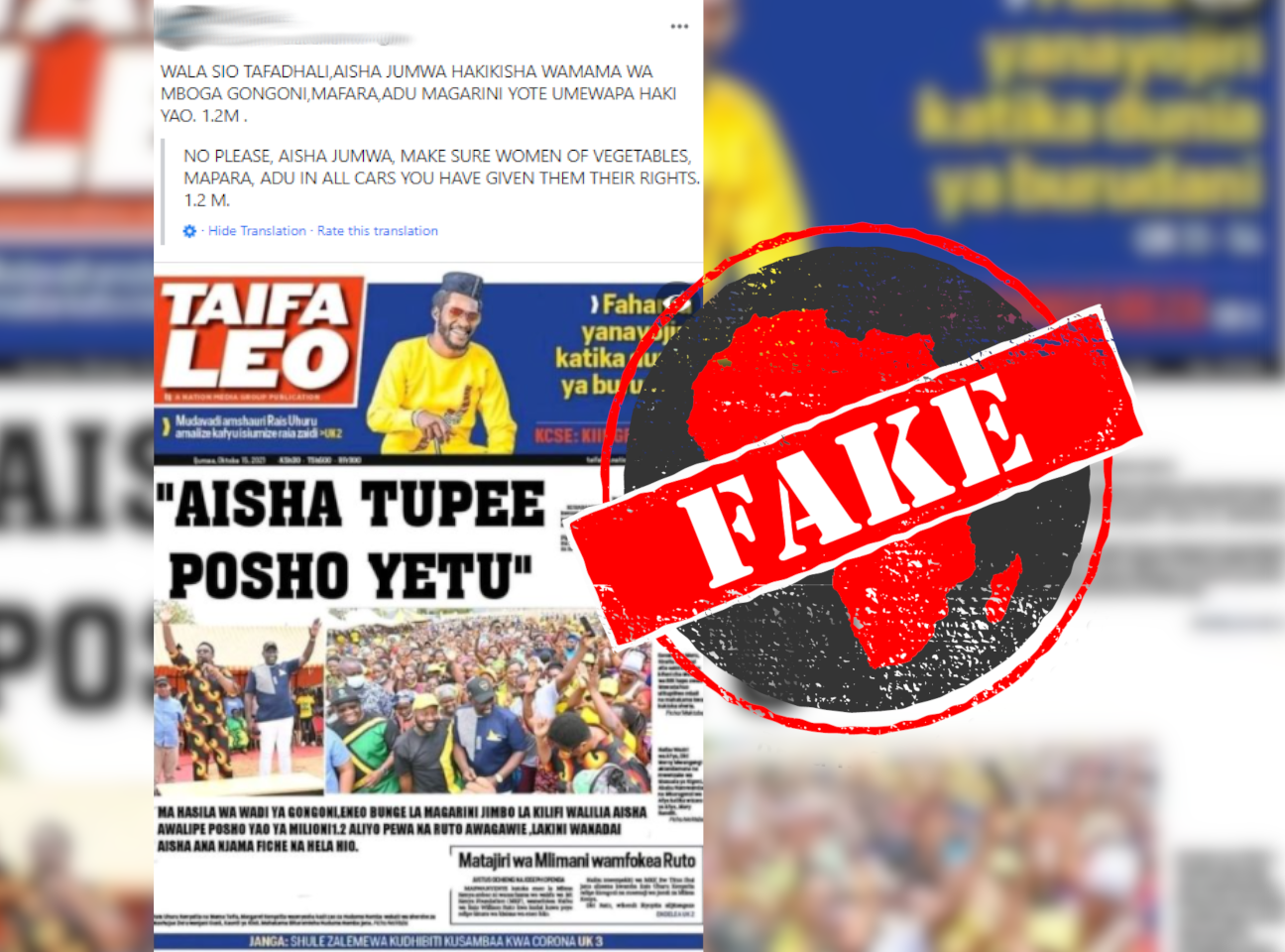“Aisha tupee posho yetu,” reads the headline of what appears to be the 15 October 2021 issue of Taifa Leo, a Kiswahili newspaper in Kenya.
This translates as: “Aisha Jumwa please give us our share.” Jumwa is the member of parliament for Malindi constituency. She is also a close ally of deputy president William Ruto.
Text below the headline reads: “Ma hasila wa wadi ya Gongoni, eneo bunge la Magarini jimbo la Kilifi walilia isha awalipe posho yao ya milioni 1.2 aliyopewa na Ruto awagawie, lakini wanadai Aisha ana njama fiche na hela hio.”
This means: “The hustlers in Gongoni ward, Magarini constituency in Kilifi county are asking Aisha to pay them their share of KSh1.2 million she was given by deputy president William Ruto to share with them. They claim she has other plans with that cash.”
The front page shows photos of Ruto and Jumwa at the coast during a political tour.
But did Taifa Leo really publish this report? We checked.

‘Illegalities of Uhuruto’
The front page’s headline font is different to the one normally used by Taifa Leo.
Africa Check searched for the front page of the 15 October issue on the newspaper's Facebook page and found it – but it too is different.
The original headline reads “Haramu za Uhuruto”, which means “illegalities of Uhuruto”. Uhuruto is a blended name for president Uhuru Kenyatta and deputy president William Ruto. The story is about a court decision declaring a government project to roll out a unique identification number as illegal.
The photos on the real front page are also different, with the main image showing Kenyatta and his wife Margararet Kenyatta, not Ruto and Jumwa. The newspaper circulating on Facebook has been doctored.
On 17 October Nation Media, which owns Taifa Leo, posted the fake front page on its Facebook and Twitter accounts – stamped “FAKE”.
🚨 FAKE NEWS ALERT! 🚨
— Nation Africa (@NationAfrica) October 17, 2021
Please be advised that this Taifa Leo splash doing rounds on social media is fake. Do not fall for fake news. #FakeNewsAlert pic.twitter.com/kCzgdhJMHC
The posts read: “Please be advised that this Taifa Leo splash doing rounds on social media is fake. Do not fall for fake news.”
Republish our content for free
For publishers: what to do if your post is rated false
A fact-checker has rated your Facebook or Instagram post as “false”, “altered”, “partly false” or “missing context”. This could have serious consequences. What do you do?
Click on our guide for the steps you should follow.
Publishers guideAfrica Check teams up with Facebook
Africa Check is a partner in Meta's third-party fact-checking programme to help stop the spread of false information on social media.
The content we rate as “false” will be downgraded on Facebook and Instagram. This means fewer people will see it.
You can also help identify false information on Facebook. This guide explains how.


Add new comment